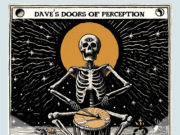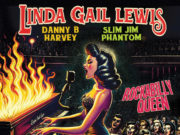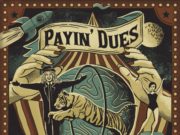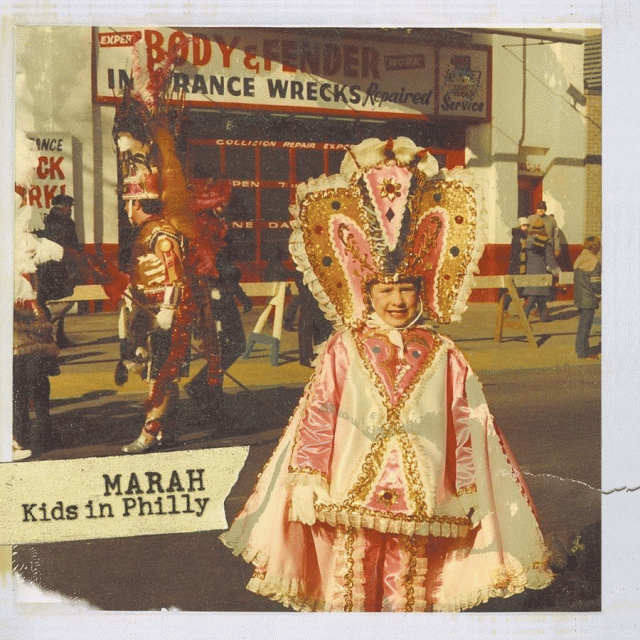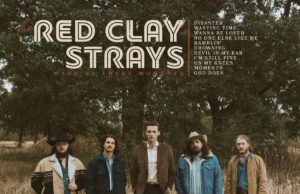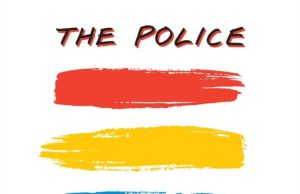Two decades ago, new albums from Marah, Ween, King Crimson, Jayhawks, Distillers and others were spinning away in my portable CD player. Here’s what I had to say about them back then (with some minor editing):
 Marah
Marah
Kids in Philly
Good singers and bands are a dime a dozen. But truly great artists are fewer and farther between. And if your list of immortal greats includes names like Bruce Springsteen, Van Morrison, The Faces, Bob Dylan, The Replacements, Wilco and Steve Earle, it’s time to add another name to the roster: Marah. The Philadelphia outfit — whose name rhymes with hurrah — are a roots-rocky quartet led by singer-guitarist brothers Dave and Serge Bielanko. What makes them so great? Well, take another look at that short list of artists above. Now imagine a band that possesses most of the finest qualities of all of them. Now imagine the record they would make.
Marah’s indispensable sophomore disc Kids in Philly is that album. It only takes one spin to hear that and know that. All the pieces of the puzzle are right there in front of you. You’ve got Dave’s beer-and-smokes rasp, wordy lyrical lists and streetcorner beat-poet phrasing, which remind you of Springsteen or mid-’60s Dylan. You’ve got Serge’s backup vocals, hype-man enthusiasm and muscular guitar work, which mark him as the Miami Steve of the operation. You’ve got the rule-breaking song structures, seat-of-your-pants arrangements and lively home-made production, along with an everything-and-the-kitchen sink instrumental arsenal that includes steel guitar, xylophone, harmonica, amusement-park organ and plenty more. You’ve got the rough-hewn jangle of Middle America; the frat-rock bounce and party atmosphere of the East Coast; the gritty Chuck Berry-style guitar lines and grittier Paul Westerberg-inspired angst and dissatisfaction of every basement and garage band around the globe.
Put them all together and you get 11 grandly ambitious self-produced street-scene portraits of the brothers’ home turf in the city of cheesesteak, Rocky Balboa and Angelo Bruno. But unlike The Boss’s romanticized homages to Jersey, Marah take a more realistic view, often pulling no punches on their tales of lost loves and lost lives. On the streets of their Philadelphia, you’ll find “a stain of blood, a Sixers cap and the stench of piss and beer … the ghost of greed, the ghost of fury and the ghost of fear,” terse inventory entries in The History of Where Somebody Has Been Killed. Down in the river, there’s “a bag of dead kittens, and mufflers and engines, an army of rats and Colt .45 bottles” — along with the body of Josephine, whose lover “put a bullet in her brain and threw her body off the bridge” when she asked for her cash in It’s Only Money, Tyrone. And under that expressway bridge there’s a funky Catfisherman, kicking back on a pile of rubble with “a joint, three Millers and 12 chicken livers” — while spinning stories of “a buddy who swears he once caught a human head.” No wonder he’s also toting “a sharp-ass blade (in) case a motherf—er wanna make trouble.”
Not that the Bielankos are some kind of morbid weirdos; an equal number of these songs are bittersweet, first-person short stories about the nightlife and melting-pot beauty of their beloved south Philly. But they still cut just as deep. The banjo-drive bounce of Faraway You follows a bus passenger who spies his ex necking with her new guy in the park; My Heart is the Bums on the Street is the urban travelogue of a broken-heart who knows every inch of his city — and it all reminds him of the gal whose door is the only one that gets slammed in his face. Christian St., a raucously rousing rock ’n’ roll anthem to a working-class stretch of road, will put a grin on your mug. Round Eye Blues, a Vietnam vet’s harrowing flashback to choppers “filled with your gutshot friends,” will make you tear up like a sap. At least, that’s what happen when I hear ’em.
And I’ve already heard them countless times. Kids in Philly has never been far from my Discman since the day I got an advance copy months back. Sharp-eyed readers might recall I reviewed it in March when it was first slated to come out in Canada; now that it’s finally arrived, I wanted to write it up again. Some albums are too important to let slip through the cracks; this is one of them. Stirring, exuberant and raggedly beautiful, Kids in Philly is an album you’ll listen to on infinite repeat. An album you’ll still be spinning years from now, when you’ve memorized every word and can air-guitar every lick. An album that will become part of the soundtrack to your life. In short, a truly great album from the next truly great American band. Take it from the Bielankos: There ain’t no doubt about it, baby.
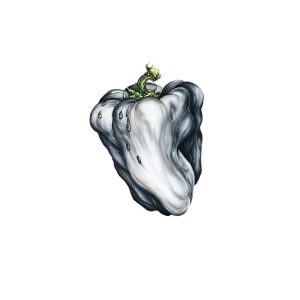 Ween
Ween
White Pepper
If there’s one thing you can’t call Ween, it’s predictable. During the past 16 years, Aaron Freeman and Mickey Melchiondo — better known as oddball musical brothers Gene and Dean Ween — have issued everything from abrasive garage-rock rackets and demento-pop absurdities to slickly authentic country and western. On White Pepper, the eighth serving of their idiosyncratic musical gumbo, they dish up a little taste of everything: Peppy Britpop a la 10 CC (Exactly Where I’m At, Even if You Don’t), suave island soul a la Roxy Music (Bananas and Blow), distortion pedal stock-car rock a la Zeke (Stoker Ace), a little classic C&W (Falling Out) and, of course, plenty of their deranged prog-pop opuses (Flutes of Chi). “Please don’t let my brain explode,” begs one of the boys at one point. They took the words right outta my mouth.
 King Crimson
King Crimson
The ConstruKction of Light
Call them the 21st century schizoid band. Over the decades, there have been almost as many different incarnations of prog-rock icons King Crimson as there have been Menudo members. Arguably the most accessible (and certainly the most commercially successful) of these was the ’80s version featuring singer-guitarist Adrian Belew, bassist Tony Levin and drummer Bill Bruford along with guitarist Robert Fripp — long the sole remaining original member. This latest studio disc — the first since the 1995 comeback album THRAK — reunites the guitar-slinging half of that lineup, along with the new rhythm section of bassist Trey Gunn and drummer Pat Mastelotto. As always, Belew’s twisted stream-of-consciousness lyrics (The World’s my Oyster Soup Kitchen Floor Wax Museum) add some much-needed levity to Fripp’s algebraic time signatures, stop-start arrangements and prestidigital arpeggios. Nothing here is as memorable as, say, Elephant Talk or Thela Hun Ginjeet, but even at half-strength, Crimson’s unique personality still emerges.
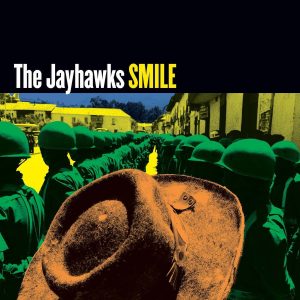 The Jayhawks
The Jayhawks
Smile
Yes, it’s named for the legendary unreleased Beach Boys album. Yes, track is called Mr. Wilson, an apparent ode to Brian. But no, Minneapolis alt-country stalwarts The Jayhawks haven’t turned into a surf-pop outfit. Having said that, Smile, their sixth disc and second CD since the departure of singer-songwriter Mark Olson, undeniably boasts a level of craftsmanship and inspiration Mr. Pet Sounds might endorse, if not envy. Credit illustrious producer Bob Ezrin, who polishes the band’s shimmering roots-rock melodies and bar-band aesthetic with a shiny gloss of keyboards, drum loops and studio wizardry. Not so much, though, that it interferes with the unvarnished simplicity of the quintet’s style, which alternates between Gram Parsons-style country-soul ballads like A Break in the Clouds and Wilco-like rockers like Somewhere in Ohio and Life Floats By. After ’97’s sombre post-breakup disc Sound of Lies, you’ll be glad to see the ’hawks smiling and soaring again.
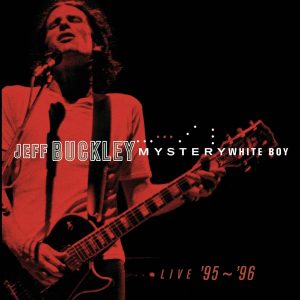 Jeff Buckley
Jeff Buckley
Mystery White Boy
Few musical sagas end as tragically as that of folk-rocker Jeff Buckley, who drowned in Memphis in 1997 on the eve of recording his second album, to be titled My Sweetheart the Drunk. Although the demos of that disc’s tunes were released in ’98, Mystery White Boy — a live collection of Buckley’s best performances in the two years preceding his untimely death — provides a clearer insight into his unfulfilled potential. With movie-star looks and a shamanistic presence — think Jim Morrison crossed with Van Morrison — Buckley’s individualistic style was part Led Zeppelin and part folk, founded on churning, roiling waves of guitars that buoyed his introspective, poetic lyrics and vocals that ranged from a throat-shredding scream and a qawwali-like howl to an intimate whisper. The baker’s dozen tracks here include both his best-known songs (Last Goodbye, Mojo Pin, Eternal Life, Lilac Wine) and some surprising covers, including an innocently sweet version of The Man That Got Away. If only he hadn’t.
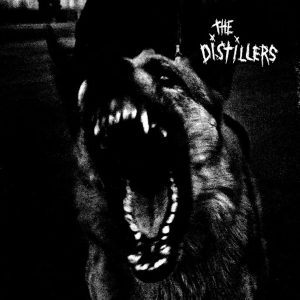 The Distillers
The Distillers
The Distillers
Distillers’ vocalist Brody’s last name happens to be Armstrong — as in wife of Tim Armstrong, guitarist in Rancid and, more importantly, owner of Hellcat Records, the label that issued this disc. But if you’re assuming this is some sort of nepotistic, indulge-the-boss’s-wife deal, give yourself a smack, jack. First of all, nepotism definitely ain’t punk, dude. And second, the supercharged assault of this 14-track debut might be the rip-roarinest album the label has released since the last Rancid disc. The press bumpf compares her to Wendy Williams and Patti Smith — the latter chiefly based on a smoking, chunky cover of Ask the Angels — but her razor-blade wail, riff-heavy punk anthems, ease with the F-word and in-yer-face bluster might also remind you of Courtney Love in her all her punky, pre-stardom glory. With pure, unfiltered power like this, Armstrong will make a name for herself fast.
 Marshall Crenshaw
Marshall Crenshaw
#447
OK, the title is a bit of an exaggeration. This is really just singer-songwriter/actor/author/guitar collector/all-around pop Renaissance man Marshall Crenshaw’s ninth studio album. Still, it has been a long time — nearly 20 years in fact — since the days of There She Goes Again and Someday, Someway. But #447 makes it clear that despite his now-veteran status, Crenshaw’s songwriting skills remain sharp. Most of these 11 tracks are vintage nuggets of the clever pop this former Beatlemania star has long made his stock in trade, from the Fab Four harmonies and melodies to the wry, Elvis Costello-esque lyrics of tracks like Dime a Dozen Guy and Right There in Front of Me. As an interesting twist, Crenshaw even explores some jazzy textures and progressions on a few instrumentals. It might not make No. 1, but #447 should rate high on your personal hit parade.
https://youtu.be/mZJ6I_4NUck
 T-Model Ford
T-Model Ford
She Ain’t None of Your’n
Mississippi bluesman T-Model Ford mellowing in his old age? I never thought I’d see the day. Not that it isn’t long overdue — the cantankerous old coot who flaunted his insanity, gunshot wounds and prison record on his ’97 debut disc Pee-Wee Get My Gun is pushing 80, after all. Still, it’s kinda surprising to hear ornery ol’ T-Model asking his gal to Take a Ride With Me or begging to know When Are You Coming Back Home? The old T-Model woulda just gone upside her head and tied her to an engine block. Luckily, Ford is still as musically dangerous as the wrong end of a broken bottle. Strapping his raggedy-ass juke-joint guitar lines to the back of drummer Spam’s primitive shuffle, he saddles up some hypnotizing, Hooker-style boogies like Junk and Chicken Head Man and rides ’em into the ground like an old rustbucket you stopped making the payments on. He may be mellower, but I bet he could still kick my ass.
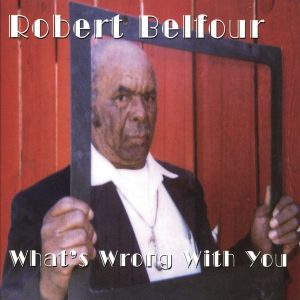 Robert Belfour
Robert Belfour
What’s Wrong With You?
When 60-year-old singer-guitarist Robert Belfour was growing up in northern Mississippi, he says, he lived next door to blues legend Junior Kimbrough. Apparently he also lived down the block from Robert Johnson, up the street from John Lee Hooker and across the road from Charlie Patton. At least, that’s what it sounds like on his phenomenal debut disc What’s Wrong With You? Unlike most of his labelmates and contemporaries who rely on electric guitars to fatten their sound and appeal to younger crowds, Belfour — a former construction worker and landscaper — has just an acoustic guitar and his self-taught skills. Turns out they’re plenty; with his masterful fingerpicking and smoky, gruff voice, he conjures up haunting folk-blues masterpieces that could have come from a field recording from the ’30s — all that’s missing are the clicks and pops of the acetates. Belfour is living proof you don’t need an amp to be electrifying.
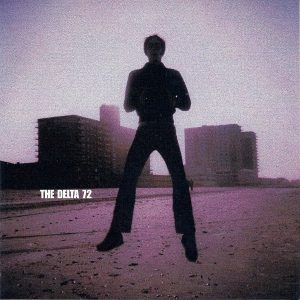 The Delta 72
The Delta 72
000
This third album from D.C.’s hard-driving soul men was reportedly recorded on the same sound board as The Rolling Stones’ Exile on Main St. Sounds like Mick and the boys tossed in some guitar amps, effects pedals, drumbeats and even a tune or two to sweeten the deal. Once the R&B equivalent of Jon Spencer’s manic blooz-rock, on the endlessly jiving 000 The Delta 72 inject their soulful, organ-driven sound with liberal doses of Keith Richards guitar chop and pouty Jaggeresque vocals from singer-axeman Gregg Foreman, not to mention gritty junkie-funk grooves the Glimmer Twins could easily have left on the end of one of those old tape reels. The presence of underproducers Adam and Eve (aka Royal Trux’s Jennifer Herrema and Neil Hagerty, indie rock’s biggest Stones worshippers) just might have something to do with it. Then again, maybe the Deltas are just trying something new — and like I heard somebody say once, when you try sometimes, you get what you need.
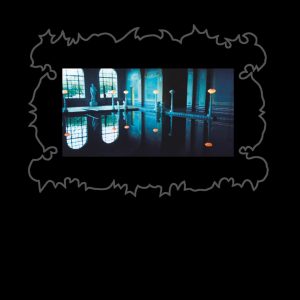 The For Carnation
The For Carnation
The For Carnation
Finally, a band that knows the difference between slow and sleep-inducing. Chicago quintet For Carnation — who have at times included members of post-rock godheads such as Slint, Tortoise and Eleventh Day Dream — deliver their dreamy, dramatic dirges at a deliberate downbeat and with all the wide open space of plenty of their indie-rock brethren. But thanks to bassist Todd Cook’s tightly wound lines, the propulsive, crisply funky stickwork of drummer Steve Goodfriend, Michael McMahan’s sparkling guitars and singer Brian McMahan’s Leonard Cohen growl and fever-dream lyrics, the sprawling musical sagas (average length: eight minutes) on their third album retain all the tension of a deliciously drawn-out psychological thriller. Which brings up another reason these guys won’t put you to sleep — you won’t want to listen to this with the lights off.
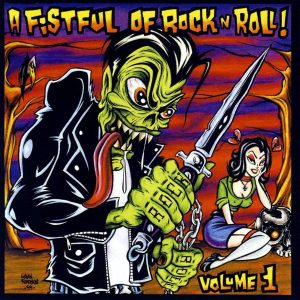 A Fistful of Rock ’N’ Roll Vol. 1 – 4
A Fistful of Rock ’N’ Roll Vol. 1 – 4
Various Artists
Maybe it has something to do with action/reaction stuff I learned about back in science class. Ever since teen-pop started gumming up the music scene, I’ve noticed the ranks of old-school, down ’n’ dirty riff-rock bands are swelling faster than Fred Durst’s head. In fact, it’s almost too much, too soon — unless you’ve got an unlimited amount of time and scratch, it’s impossible to keep track of ’em all. A Fistful of Rock, a kicking new series of punk compilations, can help you get a handle on the situation. These smartly sequeneced sets balance acts you do (or at least should) know (Supersuckers, Zeke, Streetwalkin’ Cheetahs, Black Halos, Tricky Woo) with plenty you probably don’t (B-Movie Rats, RC5, Toilet Boys). And, most importantly, a choice few you really deserve to know about, like the AC/DC grind of El Diablo, the Tina Turner-meets-The MC5 soul-power kick of The Bell Rays or awesome, foul-mouthed crunch of Iron Boss, whose headbanging contribution cannot be named in a family newspaper (it rhymes with Brothertrucker). A Fistful of Rock gets two thumbs up.
 Stratovarius
Stratovarius
Infinite
The cover of this Finnish quintet’s latest album — their 11th, believe it or not — is a painting of golden dolphins jumping back and forth between alternate worlds. Presumably, one of them is a land where time stopped about 1985 — and where Stratovarius’s brand of melodically overblown hair-metal never went out of style. A land where a band that combines the galloping speed of Iron Maiden, the falsetto pomp and grandeur of Queen and the intricately proggy arrangements of a million guitar-wank outfits could somehow top the charts. A land where the masses cry out for epic-length, multi-layered opuses with titles such as Mother Gaia and Phoenix. And a land where an anachronistic Finnish band can somehow sustain a career that has lasted for 11 albums — including a greatest-hits collection and a double-live set. If you’re a prog-metalloid, maybe that’s your idea of heaven. For me, it’s a nice place to visit, but I wouldn’t want to live there.
 Metal Church
Metal Church
Live
Bands like Metal Church are the reason God invented warmup slots. These long-serving, long-suffering Seattle rivetheads never really graduated from the B-grade metal circuit to the big-time, and despite winning some kudos for last year’s reunion disc Masterpeace, their best days are probably behind them. About 15 years behind them, if this live document from the band’s 1986 tour is any sign. Recorded during the trek for their second album The Dark and then forgotten in a recording studio closet, these tapes are finally being released to satisfy fans who need live versions of Ton of Bricks, Hitman, Psycho, Start the Fire — and, of course, their eponymous anthem Metal Church — to make their lives complete. For the rest of us, well, think of Metal Church’s ’80s-vintage sound — screeching vocals, head-banging grooves and acrobatic guitars — as a precursor to more rugged and intelligent ’90s grunge. Once a warmup band, always a warmup band.
https://youtu.be/9Kozbqnz74U
 Tupac Shakur
Tupac Shakur
The Lost Tapes
You know how you can tell these tapes really were lost? Because Tupac’s been dead almost four years, and any self-respecting cash-in schemer would’ve had these on the Internet before his body made it to the morgue. But while they may be authentic, that doesn’t make these decade-old demos the real deal. Recorded by Digital Underground associate Chopmaster J while Shakur was auditioning for the group, they present the future rap king in a way he’d probably rather not be remembered — inexperienced, unnatural on the mic, lacking in rhythmic flow and blatantly biting the ’80s rap sound of NWA, Ice-T and PE. If you’re an obsessive fan, you might get a kick out of hearing Pac back in the day. But I’ll wait for the inevitable Lost Tapes Vol. 2: The Telephone Messages Album, featuring the single, Yo Chopmaster, Pick Up!


